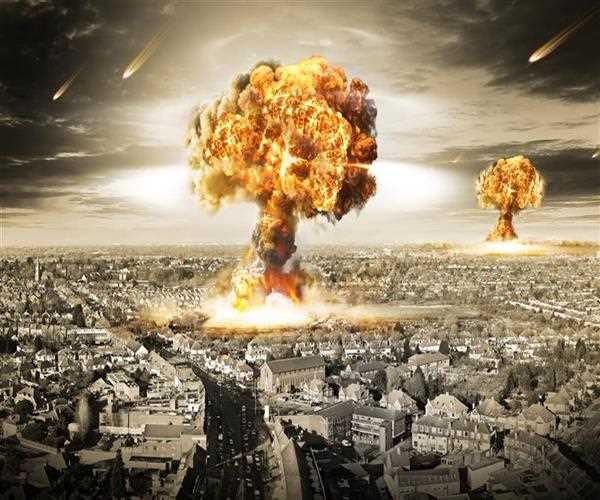
19-May-2023 , Updated on 5/19/2023 2:55:52 AM
Role of diplomacy in preventing nuclear war
In a world where the threat of nuclear war looms large, diplomacy plays a crucial role in averting catastrophic outcomes. Nuclear weapons possess the power to obliterate entire cities, disrupt global stability, and cause unimaginable suffering. However, diplomacy offers a path forward by fostering dialogue, negotiation, and understanding among nations. This view explores the pivotal role of diplomacy in preventing nuclear war, highlighting its significance in mitigating tensions, promoting arms control agreements, and creating a framework for peaceful resolutions.
I. Diplomacy as a Bridge to Mitigate Tensions:
Diplomacy serves as a bridge to mitigate tensions between nations, reducing the risk of nuclear conflict. By establishing channels of communication, diplomatic efforts can defuse crises, prevent misunderstandings, and enable dialogue even in the face of strained relationships. Engaging in open and constructive conversations allows nations to express their concerns, share perspectives, and seek common ground. For instance, during the Cuban Missile Crisis in 1962, diplomatic negotiations between the United States and the Soviet Union, led by President John F. Kennedy and Premier Nikita Khrushchev respectively, averted a nuclear catastrophe by finding a peaceful resolution.
II. Arms Control Agreements and Non-Proliferation Efforts:
Diplomacy plays a vital role in formulating and implementing arms control agreements, which help prevent the spread of nuclear weapons and reduce global stockpiles. Treaties like the Treaty on the Non-Proliferation of Nuclear Weapons (NPT) and the Strategic Arms Reduction Treaty (START) have been instrumental in curbing nuclear proliferation and promoting disarmament. Diplomatic negotiations provide a platform for countries to address concerns, build trust, and reach consensus on measures to limit the development, testing, and deployment of nuclear weapons.
Moreover, diplomacy enables verification and monitoring mechanisms that ensure compliance with these agreements. By establishing international organizations such as the International Atomic Energy Agency (IAEA) and the Comprehensive Nuclear-Test-Ban Treaty Organization (CTBTO), diplomacy contributes to the transparency and accountability necessary to maintain confidence among nations. These diplomatic efforts strengthen the non-proliferation regime, preventing the unchecked proliferation of nuclear weapons and fostering stability.
III. Confidence-Building Measures and Cooperative Security:
Diplomacy fosters confidence-building measures and cooperative security frameworks that promote stability and reduce the likelihood of nuclear conflict. Confidence-building measures encompass various initiatives, such as transparency measures, information exchanges, and joint military exercises. These measures enable countries to build trust, enhance transparency, and alleviate suspicions regarding each other's nuclear capabilities and intentions. By encouraging dialogue and cooperation, diplomacy helps foster an atmosphere of mutual understanding and reduces the risk of miscalculation or accidental escalation.
Cooperative security arrangements, such as alliances and regional forums, also play a crucial role in preventing nuclear war. Diplomatic efforts in establishing platforms like the North Atlantic Treaty Organization (NATO), the Association of Southeast Asian Nations (ASEAN), or the Organization for Security and Cooperation in Europe (OSCE) contribute to collective security and conflict resolution. These diplomatic initiatives provide forums for dialogue, dispute resolution, and the promotion of peaceful solutions to regional tensions. By addressing security concerns and fostering cooperation, diplomacy helps create an environment where conflicts can be resolved through peaceful means rather than resorting to nuclear options.
The prevention of nuclear war requires steadfast commitment to diplomacy. Through diplomatic channels, nations can mitigate tensions, build trust, negotiate arms control agreements, and establish cooperative security frameworks. By prioritizing dialogue, understanding, and compromise, diplomatic efforts provide an essential means to address conflicts and avert the devastating consequences of nuclear war. As the world continues to face nuclear challenges, diplomacy remains a critical tool for preventing nuclear war.
However, diplomacy alone is not a panacea. It must be accompanied by other measures such as robust intelligence gathering, strong deterrence capabilities, and effective crisis management strategies. Nevertheless, diplomacy forms the foundation upon which these measures can be built and coordinated.
Moving forward, it is crucial for nations to prioritize diplomacy in their foreign policies and allocate resources to strengthen diplomatic channels and institutions. This includes investing in diplomatic training and education, enhancing diplomatic networks, and promoting cultural exchange programs to foster understanding and build relationships between nations.
Furthermore, the role of multilateral diplomacy cannot be overstated. International organizations such as the United Nations (UN) and regional bodies provide platforms for diplomatic engagement, conflict resolution, and negotiation. It is imperative that nations support and uphold these institutions, recognizing their significance in maintaining global peace and security.
Addressing the challenges posed by nuclear proliferation requires a proactive and comprehensive approach. Diplomacy should not be confined to crisis management but should be utilized as a continuous process of engagement, dialogue, and negotiation. By building trust, promoting cooperation, and seeking common ground, diplomatic efforts can help establish a world free from the threat of nuclear war.
In conclusion, the role of diplomacy in preventing nuclear war cannot be underestimated. It serves as a crucial tool in mitigating tensions, promoting arms control agreements, and creating a framework for peaceful resolutions. Through dialogue, trust-building, and cooperative security measures, diplomacy provides a path forward to prevent the devastating consequences of nuclear conflict. It is incumbent upon nations to prioritize diplomacy, invest in diplomatic resources, and strengthen multilateral cooperation to ensure a safer and more secure world for future generations.

SEO and Content Writer
I am Drishan vig. I used to write blogs, articles, and stories in a way that entices the audience. I assure you that consistency, style, and tone must be met while writing the content. Working with the clients like bfc, varthana, ITC hotels, indusind, mumpa, mollydolly etc. has made me realized that writing content is not enough but doing seo is the first thing for it.
Join Our Newsletter
Subscribe to our newsletter to receive emails about new views posts, releases and updates.
Copyright 2010 - 2026 MindStick Software Pvt. Ltd. All Rights Reserved Privacy Policy | Terms & Conditions | Cookie Policy